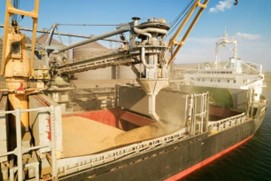Initial comments:
Bulk cargo transport is inherently more susceptible to risks than the transport of packaged or containerized goods.
At each movement in the logistics chain a short loss to a small parcel of the goods may be inevitable.
This loss, typical due to the nature of bulk cargo, is considered a ‘natural shortage’, which may result from cargo handling or the characteristics of the cargo itself such as temperature variations, humidity, mass, and the chemical and physiological characteristics of the product.
It is unwise to set an absolute percentage to determine a shortage rate that would fit within the context of natural shortage. Percentages of 0.6%, 1%, 2%, or 5% are often debated among the courts and authorities in Brazil.
Only a technical analysis of the specific cargo, type of transport, and case-by-case weighing method can determine a reasonable rate of loss for a particular transport to assess any potential liability of the carrier for losses exceeding the natural shortage limit.
Recent cases in Brazil:
In the last couple of years there has been an unusual increase in the number of court cases related to shortage of bulk cargo in Brazil.
Some few importers of bulk cargo decided to start filing indemnity claims against carriers, seeking compensation for alleged cargo shortage on ocean carriage, on very low percentages, often less than 0,4%.
Despite of some low amount claims, a lack of defence by the carrier may lead to a default judgment and could consequently affect the understanding of the court against carriers, influencing a similar negative decision in several other cases, as well as motivating cargo consignees to keep filing more and more claims.
Also, a default judgment will be enforced against the carrier in Brazil and may eventually lead to an attempt of arrest of against owner’s vessel at a future call to a Brazilian port.
Carriers’ Successful Defences:
In this context, when the carriers decided to fight this recent boom in cargo shortage claims, the results have always been successful.
In fact, several defence arguments have proven effective, including formal legal requirements; contractual provisions; lack of precision in shore scales; as well as the intrinsic nature of bulk transportation, which inherently results in natural loss.
To date, all cases that we defended have achieved a 100% success rate for the carriers in the first instance level, evidencing that it is time for carriers to remain strong and defend themselves against these ungrounded claims.
Lucas Leite Marques and Carolina Calanca – Kincaid Mendes Vianna Advogados – Brazil

Comments are closed